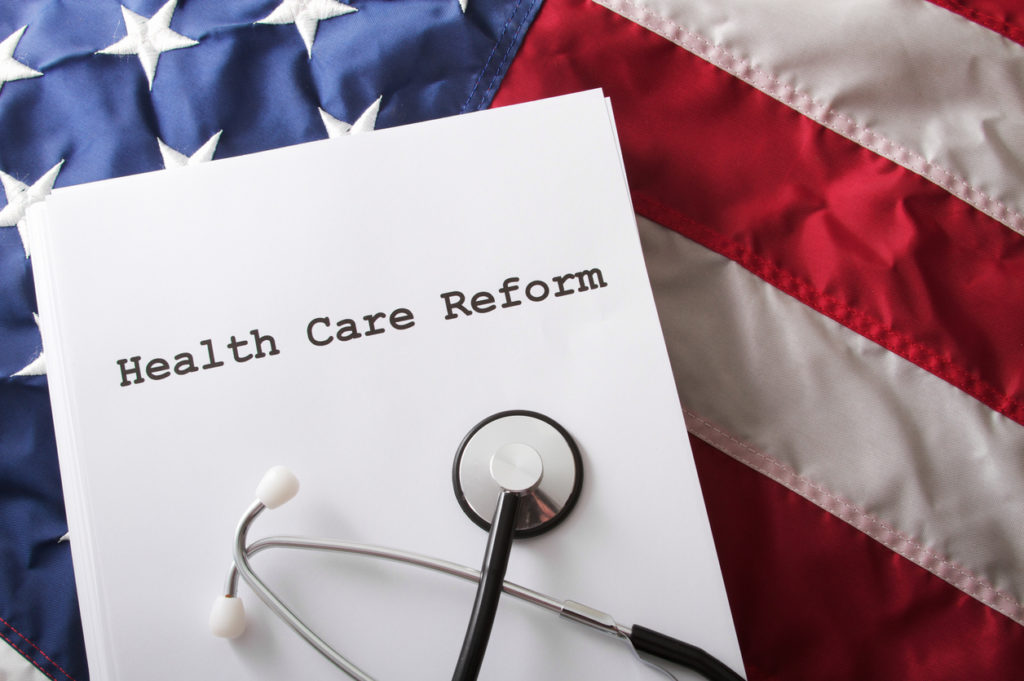What independent physicians need to know about the ACA replacement bill

What independent physicians need to know about the ACA replacement bill March 7, 2017
2,540 days after the ACA was signed into law, Republican legislators unveiled the Affordable Care Act (ACA) repeal bill, named ‘The America Health Care Act,’ yesterday.
As a reconciliation bill (part of the budget process), the bill only needs 51 votes to pass the Senate (including Vice President Mike Pence if a tie breaker is needed) and Democrats can’t filibuster. Because of reconciliation rules, many measures – including the ability to buy insurance across state lines – aren’t in the repeal bill but may resurface in future bills.
Though advocacy groups and legislators from both sides of the aisle remain conflicted about this new legislation, the bill has the backing of President Donald Trump. The Trump Administration and Republican lawmakers hope to pass the law by April.
AHCA Key Provisions:
- The bill repeals the individual mandate from the ACA and replaces it with a 30 percent surcharge given to insurance companies if patients do not keep “continuous” insurance coverage.
- Medicaid funding would shift away from its current model of open-ended federal matching payments to a per capita cap model.
- Obamacare subsidies will be replaced with age-based, rather than income-based, tax credits starting at $2,000 and up to $4,000 for individuals to help cover coverage costs.
- Some of Obamacare more popular provisions such as permitting children under 26 to stay on their parents’ insurance and requiring insurers to accept patients with pre-existing conditions will not be affected by the new bill.
- Several of the taxes included in the ACA will be eliminated including the tax on higher-income individuals that helped finance the law and taxes on medical devices, insurance plans, and prescription drug makers.
- States that didn’t expand Medicaid under the ACA will be offered financial support through a series of funding changes.
- Expands health savings accounts (HSAs) by doubling contribution limits and making HSA rules more flexible. For instance, people would be able to use their HSAs to pay for over the counter medications.
- Eliminates federal funds to Planned Parenthood for a year and completely eliminates the Prevention and Public Health Fund.
What will be the impact of the AHCA?
Because lawmakers have yet to release cost and coverage estimates for the new healthcare bill, official numbers from the Congressional Budget Office are currently unavailable but many experts have provided assessments on the impact the law could have on cost, quality, and access.
Overall, the bill’s trillion dollars in tax cuts will be most beneficial to wealthier Americans and health insurers and providers. On the other hand, state Medicaid programs stand to lose federal funding which could force states to shrink programs and consequently lead to millions of current Medicaid recipients losing coverage. In addition, recipients of current tax credits that are older, sicker, and poorer or live in areas where care is expensive are also in danger of losing access to care. By contrast, higher-income, younger individuals, will likely see their coverage become more affordable.
Key Takeaways:
- Eliminates much of Obamacare, including the individual mandate and significantly scales back Medicaid spending but retains some of the ACA’s more popular provisions.
- Benefits primarily healthier, wealthier, younger individuals and insurance companies but makes care less accessible to older, sicker, poorer individuals.
- Currently, because of a lack of support for the bill from all sides, it’s very likely the bill will go through many more iterations before becoming law. Elation is committed to bringing independent physicians timely updates and analysis on new developments.
See the bill text and the summary from the Energy & Commerce Committee.
See the bill text and the summary from the Ways & Means Committee.
Get your health policy questions answered by talking to one of our health policy specialists.






